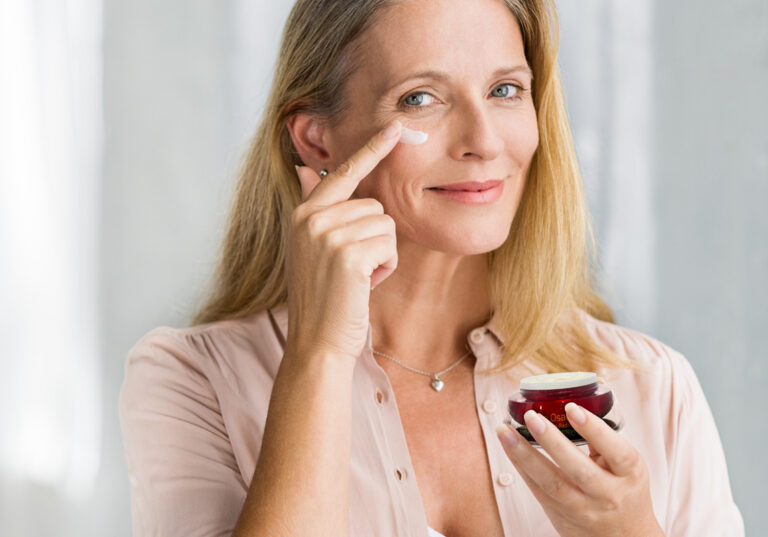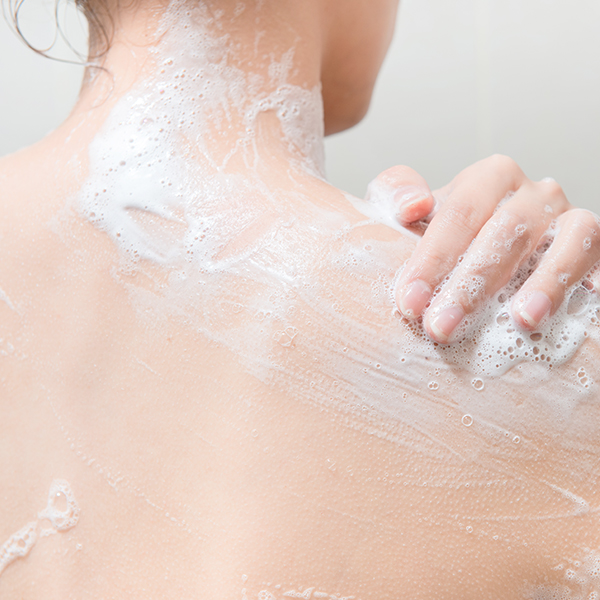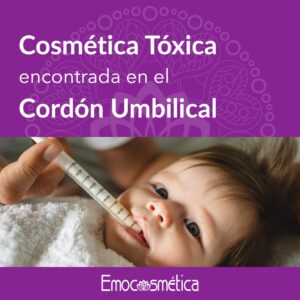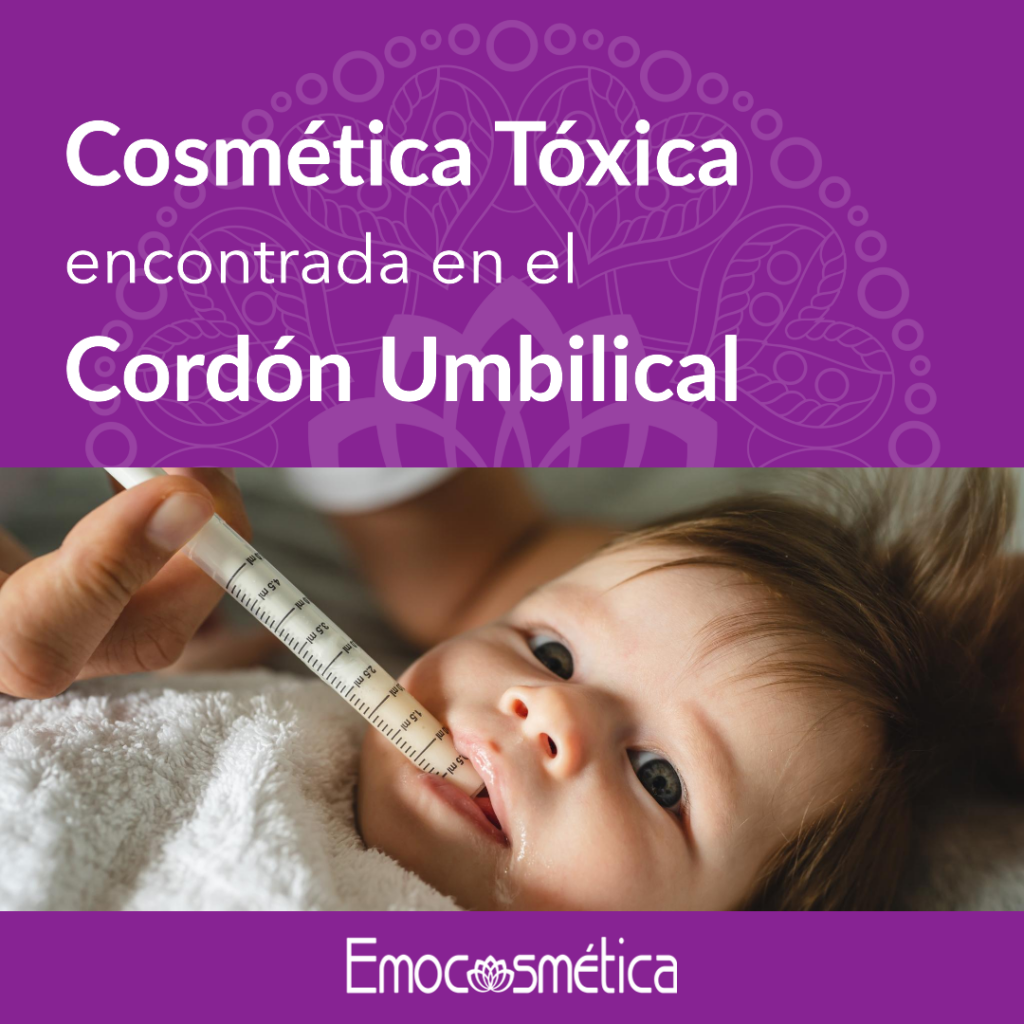
Scientists from the Institute of Environmental Diagnosis and Water Studies (IDAEA) of the Higher Center for Scientific Research (CSIC) of Spain, detects, for the first time, 11 chemical compounds in the umbilical cord blood of newborn babies. Among them are some ultraviolet (UV) filters used in sun creams and parabens Widely used in cosmetics, both possible causes of adverse effects in the early stages of fetal and child development. These results demonstrate the transfer of said compounds between the mother and the fetus through the placental barrier. The researchers warn of its possible negative effects and the need for greater monitoring and regulation.
These chemicals are of increasing concern as they are recently being detected in a wide variety of samples and pose a risk to human health and the environment.
In the umbilical cord samples they detected benzophenone-3 (oxybenzone), the most widely used UV filter worldwide for sun protection and which is currently prohibited in some countries. This endocrine disruptor affects reproduction and causes an increased risk of endometriosis, infertility, and problems during pregnancy and childbirth.
Another of the UV filters is the avobenzone, detected for the first time in the umbilical cord in this work. This substance is common in sun creams and other body lotions for its broad protection against solar radiation. The compound can interfere with the natural action of estrogens and promote the development of childhood obesity.

In addition, high concentrations of benzophenone-2, a known endocrine disruptor. It should be noted that in previous studies these researchers have already found this type of compound in human placenta and breast milk.
The problem with these compounds is that, as they are contaminants of recent detection and concern, the regulation has not established a limit value for human exposure. The research team points out that the main route of exposure to these compounds is through skin contact.
The sponsors of the study, Environmental working group (EWG), they were looking for chemical traces commonly used in personal care products. The results of the study were alarming. A wide variety of chemicals were found in samples from the babies' umbilical cords, including the following:
In general, these substances are used in cosmetic products such as lotions, creams, makeup and shampoos. While exposure levels varied among babies, the presence of these chemicals in the umbilical cord highlights concerns about prenatal exposure to substances that could be harmful.
The substances of perfluoroalkyl and polyfluoroalkyl (PFAS) They come in a wide variety and are used for their ability to repel water, heat, and stains.
Chemicals from cosmetics detected in the umbilical cord of babies raise concerns about possible health effects in newborns. Some of these substances have been associated with endocrinological problems, skin allergies and even possible carcinogenic effects.
While more research is needed to understand the extent of these effects and establish a direct correlation, the presence of these chemicals in the umbilical cord suggests that babies are exposed to them from before birth.

In addition, a recent study conducted by the journal Environment International mentions the relationship between prenatal exposure to certain organic chemicals such as pesticides and phenols with health disorders. In turn, exposure to permanent chemicals, such as perfluorocarbons (PFAS), is related to metabolic diseases, such as obesity and diabetes; and alterations in the blood lipid profile.
Although the study results raise concern, there are precautions parents can take to protect the health of their babies. In fact, choosing personal care products that are free of harmful chemicals is essential. By reading product labels and avoiding those that contain ingredients such as triclosan, parabens and phthalates, exposure to these chemicals is also minimized.
Additionally, it is important to encourage more natural and sustainable personal care practices. Opting for organic products, made with natural ingredients and no harmful additives, is a safer alternative for baby skin and hair care.
From Emocosmetics we have always been against the use of disreputable chemical ingredients, when natural alternative ingredients exist. Of course, the alternative is more expensive, but not so much as to put our health at stake.
Our Comprehensive Balance Line Sun Care It is designed to protect from the negative effects of the Sun, without forgetting to protect us from the negative consequences of the toxic chemicals used in the industry.
With natural mineral protection, without nanoparticles, turning small micas into mirrors where solar radiation bounces.
Of the more than 1400 protectors that the Environmental working group (EWG), only 5% of them have complied with the safety regulations, and more than 40% have been valued as potentially responsible for skin cancer.
Some keywords to identify them are: Oxybenzone, benzophenone, dibenzoylmethane, camphor benzalkonium methosulfate, octocrylene, butyl methoxydibenzoylmethane, drometrizole trisiloxane, ethylhexyl methoxycinnamate, ethylhexyl triazone, retinyl palmitate, retinyl, methylisothiazolinone.
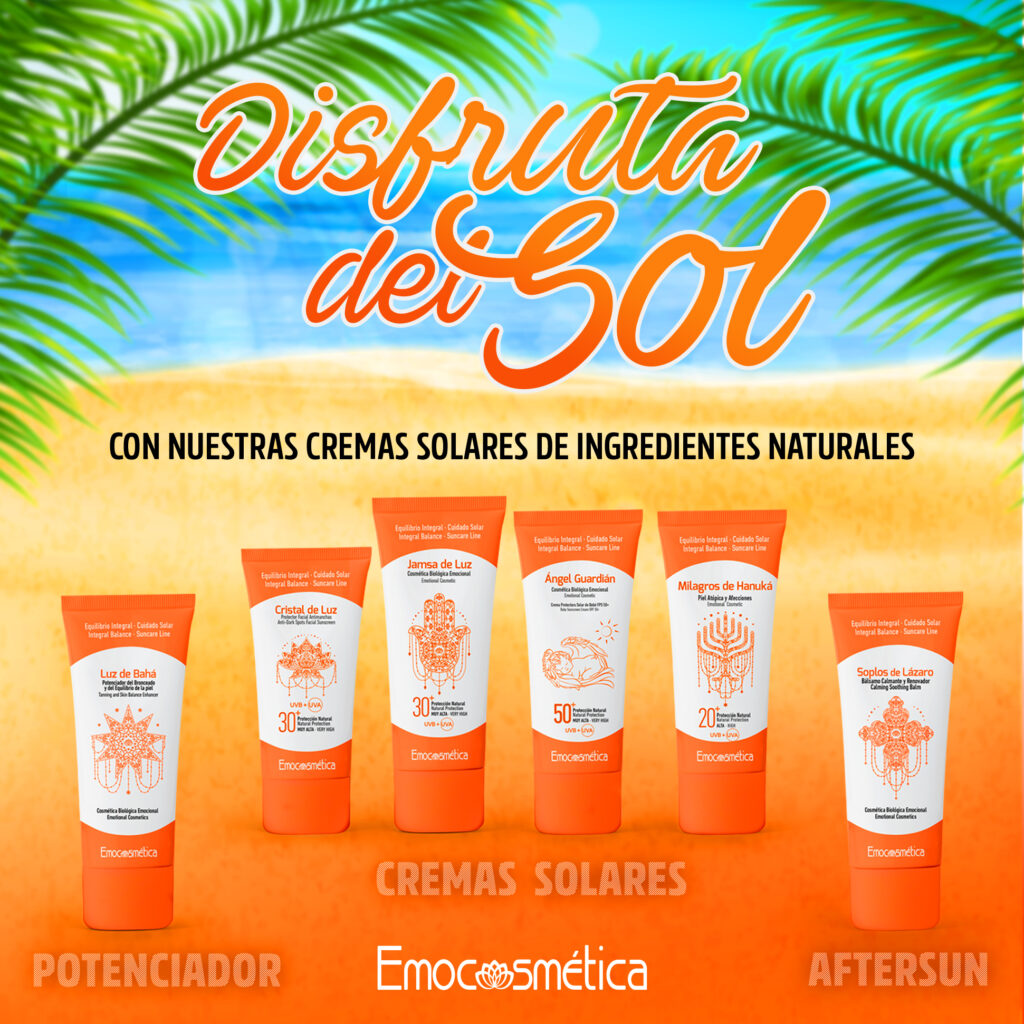
From Emocosmética we offer you ALL our products, free of toxic chemicals and ingredients of dubious reputation; emphasizing:
Natural Aloe Vera Soap of maximum purity · Khanda shine · 100g
Tan Enhancer and Skin Balance Luz de Bahá 100ml
Anti-stain Facial Protector FPS30+ Crystal Light 50ml
Pediatric Sunscreen FPS50+ Guardian Angel 80ml
Solar Body Protector FPS30+ · Jamsa de Luz · 100ml
Repair Protector FPS30+ Atopic Skin and Skin Conditions Hanukkah Miracles 80ml

